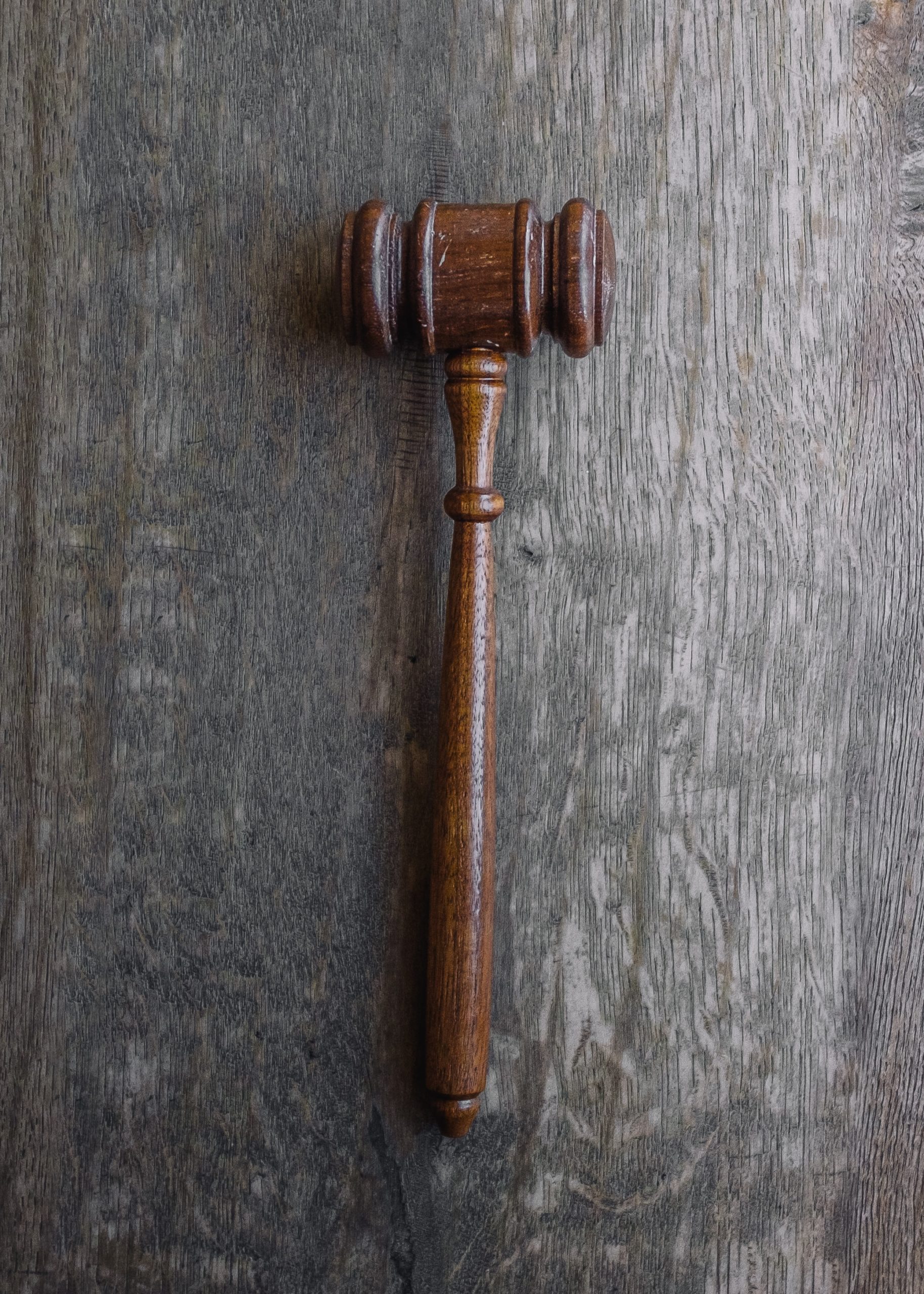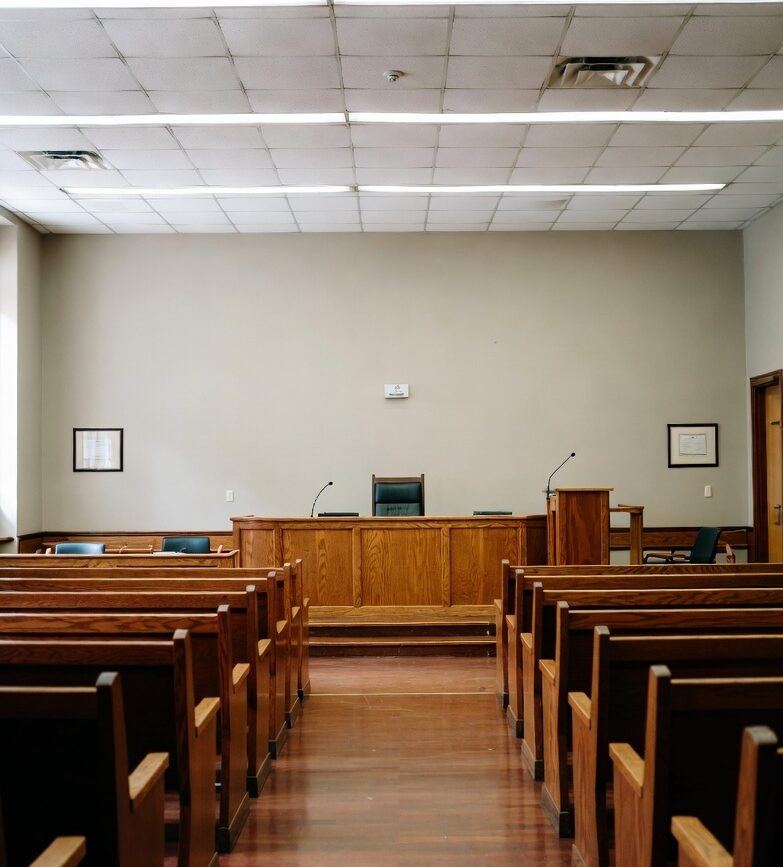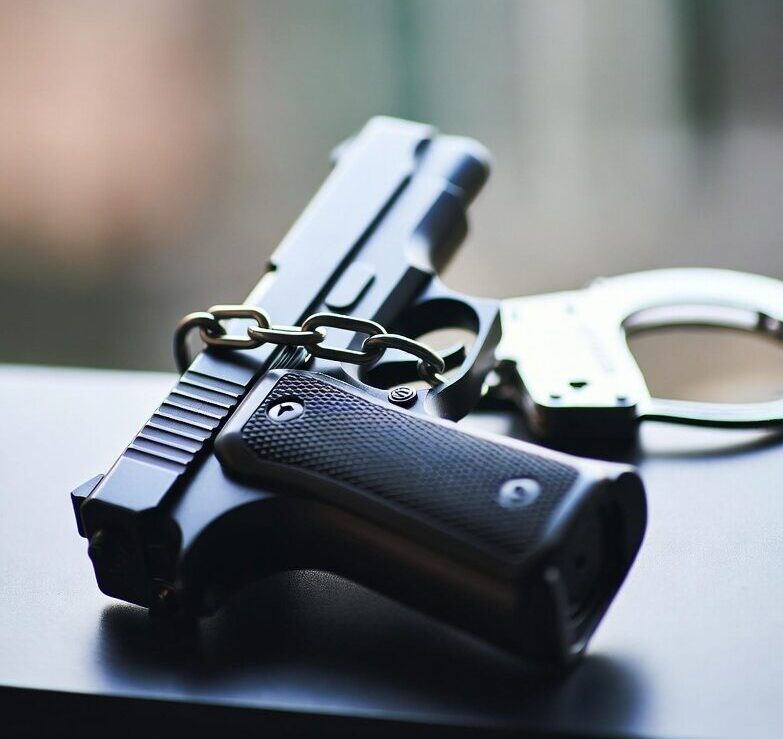By Michael Duncan
Oklahoma County District Judge Ray Elliott denied a motion Monday to disqualify District Attorney David Prater and his assistants from prosecuting a woman charged with manslaughter.
Defense lawyers claimed Prater attempted to intimidate a YWCA official to prevent an employee from testifying for the defense in the first-degree manslaughter case of Trichell Evonne Jones.
Jones’ attorneys claim their client was dealing with the effects of battered woman syndrome when she shot and killed her boyfriend Quaylan Jeffers in January 2019.
Prosecutors had argued in an earlier hearing that Angela Beatty, the chief officer of the YWCA’s domestic violence victims’ program who often testifies for prosecutors in other cases, is not a psychiatrist or psychologist and is unqualified to diagnose battered woman syndrome, a psychological condition that can develop when a person experiences abuse, usually at the hands of an intimate partner.
Elliott agreed and ruled April 5 that Beatty could not testify.
However, Beatty has been called as a witness for the prosecution in other cases to testify about the cycle of violence associated with abusive relationships leading to battered woman syndrome.
Details of Prater’s 2020 phone call to YWCA President Janet Peery surfaced during an April 5 hearing on the district attorney’s motion to prevent Beatty from testifying. During that hearing, prosecutors said the purpose of Prater’s call was to protect the reputation of the YWCA because Prater believed Beatty was about to step beyond her expertise.
“We have a witness who has testified for us on several occasions, and now we have reason to believe she is about to testify on things she is not qualified for,” Assistant District Attorney Aspen Layman said during Monday’s hearing over the motion to disqualify Prater.
Clay Curtis, who represents Jones, sharply criticized Prater’s phone calls with Peery, the YWCA president, as inappropriate.
“[Prater] has acted in a way so deplorable, unethical and, in my opinion, criminal, that it requires disqualification of him and his entire office,” Curtis told Elliott.
Elliott said he was not ruling on the propriety of Prater’s telephone call, but said there was “zero evidence” that Prater had in fact influenced Beatty to keep her from testifying. He said it was his April 5 ruling at the hearing on the DA’s motion that kept her from testifying.
“You received due process,” Elliott said to Jones and her attorneys, referencing the earlier hearing. “You just didn’t get the due process with a result that you wanted.”
Curtis says he filed ethics complaint, spoke to OSBI
During Monday’s oral arguments, Curtis told Elliott that he had been contacted by the Oklahoma State Bureau of Investigation about his allegation that Prater tried to tamper with a witness.
NonDoc attempted to verify the statement Curtis made in open court, but a law enforcement source with knowledge of the situation said any claim that Prater is under investigation is untrue.
Elliott said Curtis’ claim of an OSBI inquiry was news to him, but he added that it had no bearing on the motion to disqualify Prater in the Jones case. Elliott said it was not his role to determine whether Prater’s conduct violated ethics rules or was criminal.
“Was it right, or appropriate? Maybe or maybe not. That’s for another tribunal or court other than this one to decide,” Elliott said.
Curtis said he has also filed an ethics complaint against Prater with the Oklahoma Bar Association, alleging attempted witness tampering.
Prater said Tuesday that he is a public servant who has faced allegations before.
“I welcome any law enforcement agency to look at anything they want to look at,” Prater said. “For the past 14 and a half years, people have taken every opportunity to allege things about me and to provide false evidence to law enforcement and the grand jury about me, and I have constantly and consistently welcomed any inquiry of impropriety alleged about me. And every single time, it’s determined that those who have alleged things about me have either falsified evidence or flat-out lied.”
With Beatty now unable to testify, defense lawyers are expected to later name a new witness with greater medical credentials to testify about whether Jones suffered from battered woman syndrome.
Had Beatty been allowed to testify, it would have put Prater and his assistant district attorneys in the awkward position of disputing testimony from a witness who is typically called by prosecutors.
Defense lawyers argued Prater made the telephone call to Peery to keep Beatty from testifying in order to protect his own interests — a conflict which they said justified disqualification from prosecuting the case.
Transcript: Peery detailed Prater call
Details of Prater’s phone conversations with Peery came to light during that April 5 hearing in which Peery testified. (A transcript of her testimony is embedded below.)
Peery testified that Prater said he was calling her out of “professional courtesy” to alert her that Beatty was testifying for the defense and that he was concerned, given the relationship between his office and the YWCA’s domestic violence advocate.
Peery said she had been unaware Beatty was a witness in the Jones case. She said she then spoke with Beatty about the expected testimony for Jones’ defense and found it appropriate for the YWCA mission of protecting victims of domestic violence.
“I was asking her background as to why she wanted to take a stand in this case, and I confirmed that that was a good stand. I totally supported it,” Peery said.
Peery testified that, in hindsight, she believed Prater thought she might “disallow” Beatty from testifying. She said after discussing the matter with Beatty, she called Prater back to let him know she was good with Beatty’s testimony.
“From the sound on the phone, he sounded very angry,” she said. “Many years of working with David, I see when you disagree with him he has a tendency to react very negatively.”
Peery testified that she believed Prater intended for her to discourage Beatty from testifying, or at least to change her testimony.
“Well, he told me that they — that the prosecution — was going to basically chew her up and that she was not qualified to testify as to the state of mind of the victim at the time,” Peery said. “That the expert they called was — I can’t remember the exact terminology — but basically that they were going to put her testimony to shame.”
Peery’s testimony became central to attorney Curtis’ argument to disqualify Prater on Monday. He said the timing of Prater’s call was suspicious because, at the time, the state’s expert witness, forensic psychologist Dr. Shawn Roberson, had not yet prepared a report about his opinions in the case.
Curtis contended this showed Prater had later influenced the expert’s report, calling into question the expert’s objectivity.
Roberson’s report became key evidence in the district attorney’s challenge of Beatty’s qualifications, leading to Elliott’s order excluding her testimony.
Curtis said it may be necessary to call Prater as a witness to challenge Roberson’s expert testimony, which he said was another reason to disqualify him from prosecuting the Jones manslaughter case.
But Assistant District Attorney Aspen Layman denied that Prater — who did not speak with Beatty directly — had any communications with Roberson at all about Beatty’s testimony.
Layman also said Prater’s phone call to Peery occurred because he was concerned the reputation of the YWCA’s domestic violence programs would be harmed by Beatty’s appearance as a witness in opposition to the prosecution, especially if she was allowed to give opinions about whether a criminal defendant had battered women’s syndrome.
Assistant district attorney: Allegation is ‘frivolous’
Layman said Prater had not engaged in witness tampering and, in fact, Peery had initiated the second phone call in which she claimed Prater became angry.
“To equate these two calls to criminal conduct or anything inappropriate is frivolous,” Layman said.
At the April 5 hearing, Assistant District Attorney Dan Pond told the court that Prater, as a “minister of justice,” had an obligation to make sure a witness did not testify outside their expertise, which they contended Beatty was about to do.
Pond said defense lawyers were merely “throwing dirt” at Prater by suggesting he was intimidating a witness when, in fact, he was looking out for the interests of the YWCA.
Prater came into the courtroom during Peery’s testimony at the April 5 hearing but did not speak to the judge. He did not attend Monday’s hearing where only legal arguments were made and no witnesses testified.
Jones is set for trial on charges of first-degree manslaughter and possession of a firearm after former felony conviction on Sept. 13.
Previously published on NonDoc Media, May 19, 2021.




